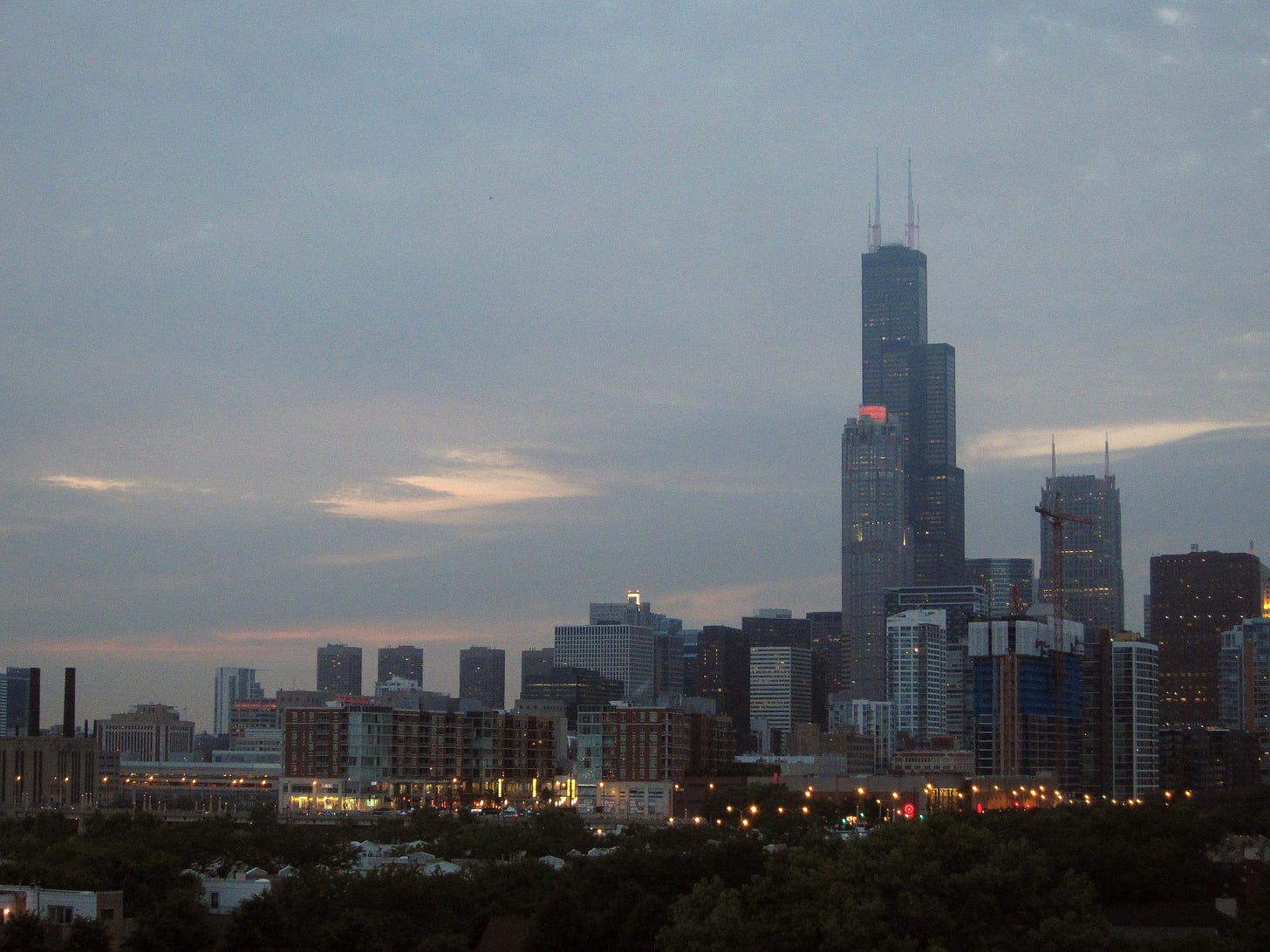With deranged meme about napalming Chicago, Trump dares Americans to stand up for each other
Description

This piece was previously published at The Hot Screen.
Over the past week or so, a particularly important thread in the story of Donald Trump’s authoritarianism has wended closer and closer to the center of events: the way that the president’s quest for unlimited power is abetted by his willingness to threaten and commit violence. This has been clear at least since the January 6, 2021 insurrection, which MAGA has sought to retroactively transform into an event of cleansing and justified mayhem. The specter and actuality of violence are now central to his effort to establish authoritarian rule; having identified internal and external threats to America that he alone can defeat, the president prescribes violence as the cure for all that ails us: undocumented immigrants must be brutalized, marginal groups like trans people must be vilified and nullified, peaceful protestors must be met with military force.
This past week saw a quickening of the tempo of threatened and enacted violence. First, Trump announced that the U.S. had destroyed a speedboat purportedly carrying drugs off the coast of Venezuela; the 11 people on board were killed, with Trump referring to them as “Tren de Aragua Narco terrorists.” Secretary of State Marco Rubio suggested more killing is imminent, stating, “The president is very clear that he’s going to use the full power of America, the full might of the United States, to take on and eradicate these drug cartels, no matter where they’re operating from.”
The U.S. has traditionally pursued anti-drug efforts as a law enforcement matter; yet not only did the Trump administration act without any legal justification, in a single blow they turned the war on drugs into a literal war, bestowing militarized capital punishment upon vague crimes in the open sea. Given Trump and the Republicans’ general lack of attention to drug abuse issues — after all, the GOP’s recently-passed One Big Bad Bill cuts drug addiction treatment funding, and the issue was hardly at the forefront of Trump’s presidential campaign — this sudden paroxysm of violence is all the more startling.
Yet this shocking or even arbitrary quality is very much part of the purpose of the act. As The Philadelphia Inquirer’s Will Bunch put it, “Trump — in ordering an extrajudicial killing without either legal or congressional authority, and facing no immediate consequences — is sending a much bigger message to a restive American citizenry and the world. He is telling us that his power, even over life and death, is now limitless.” The point is less that Trump is willing to go to war to stop all foreign-produced drugs from flowing into the U.S. (which, again, has not been anything like a publicized priority of the administration, and seems unlikely at this point to become a long-term effort) than that he and his administration are signaling their willingness to kill anyone, anywhere, at any time, should they deem them an enemy of the American state — in this case, even those who were not committing crimes that would merit capital punishment, let alone punishment without due process of law. Here, you can glimpse how a claimed right to commit violence at the president’s sole discretion is a very blunt way of asserting that the law will not bind Donald Trump. He kills because he can, and because it’s the most direct way possible of showing that he alone is the law.
The speedboat attack occurred amidst an ongoing U.S. naval deployment to the Caribbean, which the Pentagon has described as part of anti-drug-trafficking operations, but which some observers have labeled as efforts to challenge the regime of Venezuelan President Nicolás Maduro. According to Professor Alan McPherson of Temple University, it’s the largest U.S. naval buildup in the area in the last 60 years, with BBC News reporting that the U.S. “has so far deployed guided missile destroyers, the Iwo Jima amphibious group and a nuclear-powered submarine, along with P-8 intelligence planes and around 4,500 troops to the region.” Via the speedboat attack, Trump has reminded Maduro — and the American public — that threats of violence do not always remain just that, and that threats and actual violence exist on an unstable continuum under this unstable president.
It does not seem coincidental that within a few days of this strike, President Trump issued an executive order re-naming the Department of Defense as the Department of War. The New York Times reported that, “Trump said he had revived a name used for the nation’s original defense agency until just after World War II because it better reflected the country’s fighting capabilities and sent a message of “victory” to both allies and enemies.” However, in the context of Defense Secretary’s Pete Hegseth’s obsession with “lethality” and previous assertions that the Pentagon has been overly constrained by concerns about legality and civilian casualties, the name change seems intended to project an idea of presidential power rooted in his basic capacity to make war and kill people. It’s also notable that the name change itself was done via executive order, which means it lacks the force of law and thus constitutes yet another chipping away at our constitutional system as the president pretends that he alone can re-name it. Similarly, administration claims that the president is simply restoring a name from an earlier era are false; as Garrett Graff points out in a concise history of the defense establishment, only the Department of the Army had been previously known as the Department of War. Yet the administration is clearly trying to legitimize the change by tying it to some imagined time when the United States was not so woke that it was afraid to be warlike.
The recent eruptions of violent action and bluster I’ve noted above have been nominally tied to Trump’s assertions of power on the international stage: bombing narco-trafficker boats far from American shores, conveying that the U.S. military exists primarily to fight wars rather than defend the U.S., dispatching naval vessels to intimidate Venezuela’s President Nicolás Maduro. Yet a shocking social media post by President Trump this weekend shot home that Trump’s threats and perpetrations of violence aren’t limited to any single realm; that there are no clear distinctions between the domestic and the diplomatic. Referencing visuals and language from the Francis Ford Coppola film Apocalypse Now (the post is titled “Chipocalypse Now”), the president is depicted as insane air cavalry Colonel Kilgore, while the city of Chicago plays the role of a Viet Cong-occupied hamlet burned by marauding military choppers.
While few would argue that this message reveals a literal plan to level the Windy City and slaughter its population from the air, it pathologically aims to provoke us to imagine such a world, and to view very real military deployments and ICE raids through a dizzying lens of movie spectacle, mass intimidation, and the exertion of unbridled presidential power. For Trump’s fans, this vision may well evoke pleasure, with mass murder turned into a joke and a way to “own the libs,” even as it builds eagerness for some limited version of the depicted cruelty — and incites more dedicated followers to a little freelance bloodletting of their own. For opponent





